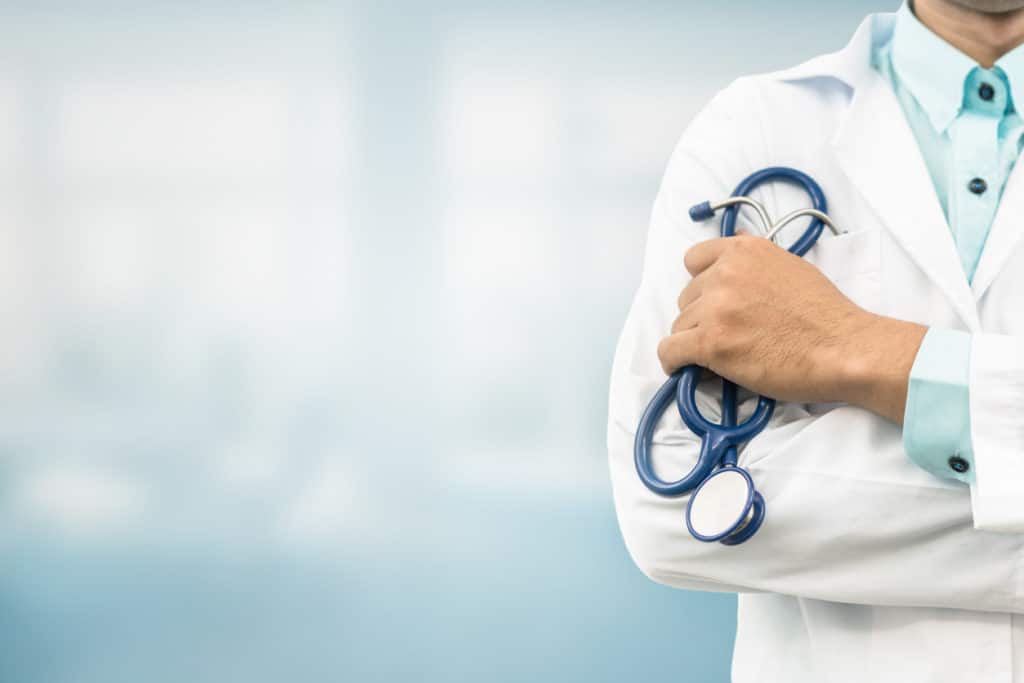BS4 – Semester 4 (In person)
- Fundamentals of Histology (Credit Hours – 5)
- Biochemistry and Nutrition (Credit Hours – 5)
- Behavior Science (Credit Hours – 5)
- Introduction to Anatomy and Physiology (Credit Hours – 6)
- Health Informatics and Research Project I (Credit Hours – 2)
Fundamentals of Histology (Credit Hours – 5): This course will provide an understanding of the structure and function of the cell and extracellular matrix as basic building blocks of tissues and organs. Specialization of cells and their interactions in forming tissues will be presented as well as how cells and tissues are structurally and functionally linked in organs. The lectures will focus on relating cell, tissue, and organ structure to their specific functions, while the laboratory studies will emphasize the microscopic recognition of tissues and organs.
Biochemistry and Nutrition (Credit Hours – 5): This course also introduces biological molecules including carbohydrates, peptides & proteins, lipids, and nucleic acids from a molecular perspective. This course also explores the chemical processes that occur in living organisms. Through lectures, laboratory sessions, and case studies, students will gain an understanding of the fundamental principles of biochemistry and their relevance to human health and disease. Topics covered include carbohydrates, lipids, proteins, nucleic acids, metabolism, and the regulation of biochemical pathways. This course provides students with a strong foundation in biochemistry that is essential for further studies in healthcare and biomedical sciences.
Behavior Science (Credit Hours – 5): This course is designed to introduce you to the scientific study of human nature. You will learn how psychologists ask questions from several different perspectives; questions regarding the relation between brain and behavior, perception, learning and thinking, development, social behavior and personality, psychopathology, and psychotherapy. Students will also learn the methods psychologists use to find answers to these questions and become acquainted with many important findings and theoretical approaches in this field.
Introduction to Anatomy and Physiology (Credit Hours – 6): Introduction to Anatomy and Physiology (Credit Hours – 6): The overall goal of this course is to ensure that the student gains a solid understanding of the structures that make up the human body and its functions. This course introduces the structure and function of the human body, including the study of cells, tissues, organs, and organ systems. Students will explore the relationships between anatomy and physiology, and how they relate to human health. Topics covered include the musculoskeletal, nervous, cardiovascular, respiratory, digestive, urinary, and reproductive systems. Students will also examine the interplay between these systems and how they contribute to the overall functioning of the body. By the end of the course, students will have a foundational understanding of human anatomy and physiology, which is essential for success in further health science studies and clinical practice.
Health Informatics and Research Project I (Credit Hours – 2): Medical Informatics is a course that introduces students to the principles and practice of health information technology (HIT) in healthcare. The course covers the use of HIT systems, including electronic health records, telemedicine, and mobile health applications, to improve patient care, population health management, and healthcare administration. Students will learn about the key concepts and standards of HIT, as well as the ethical and legal considerations involved in the use and management of health data. The course also provides an overview of the current state of HIT adoption in healthcare, the challenges, and opportunities for HIT implementation, and the future of HIT in healthcare. Research Project 1 is an introductory course that focuses on the fundamentals of research methodology and design in healthcare. The course covers the key principles of research ethics, data collection, and analysis, as well as the basic concepts of epidemiology and biostatistics. Students will learn how to formulate research questions, design a study, and collect and analyze data using appropriate statistical methods. The course also emphasizes the importance of effective communication of research findings, both in writing and oral presentation formats.
BS5 – Semester 5 (In person)
- Human Embryology and Genetics (Credit Hours – 4)
- Neuroscience (Credit Hours – 4)
- Introduction to Microbiology and Immunology (Credit Hours – 6)
- Health Informatics and Research Project II (Credit Hours – 2)
- Community Services (Credit Hours – 2)
Human Embryology and Genetics (Credit Hours – 5) This course provides an in-depth exploration of the development of the human embryo and the molecular and genetic mechanisms that underlie it. Through lectures, lab sessions, and case studies, students will gain a comprehensive understanding of the stages of human embryonic development, as well as the genetic and environmental factors that can lead to congenital abnormalities and developmental disorders. This course also explores the ethical, legal, and social implications of prenatal diagnosis and genetic counseling. Upon completion, students will have a strong foundation in embryology and genetics, essential for any health science career.
Neuroscience (Credit Hours – 6): This course provides an introduction to the field of neuroscience, focusing on the structure and function of the brain and nervous system. Topics covered include neuroanatomy, neural development, sensory and motor systems, learning and memory, emotion and motivation, and neurological disorders. This course also provides an in-depth understanding of the structure and function of the nervous system and its relationship to human health and disease. Topics covered include the anatomy and physiology of the brain and spinal cord, neuronal signaling and plasticity, sensory and motor systems, and the autonomic nervous system. Students will also learn about the neurological basis of various disorders such as Alzheimer’s, Parkinson’s, and epilepsy, and the pharmacological treatments used to manage them. The course will also emphasize the importance of ethical considerations in neuroscience research and the application of neuroscience principles in clinical practice.
Introduction to Microbiology and Immunology (Credit Hours – 6): This course will provide an in-depth understanding of the fundamental principles and scientific basis for understanding the basic principles of infectious diseases as they currently impact human medicine. Students will learn the pathogenesis, diagnosis, treatment, and prevention of infectious diseases caused by bacteria, viruses, fungi, and parasites. The course will also cover the molecular and cellular mechanisms of host defense against these pathogens, including the structure and function of the immune system and the principles of immunological diagnostics. Additionally, students will learn the principles of vaccination and the role of antibiotics and antimicrobial resistance. The course will include lectures, laboratory sessions, and interactive discussions to enhance students’ understanding of the topics covered.
Health Informatics and Research Project II (Credit Hours – 2): Research Project 2 builds on the knowledge and skills gained in Research Project 1, focusing on more advanced research methods and techniques. Students will learn how to design and conduct studies using various research designs, including observational studies, randomized controlled trials, and quasi-experimental designs. The course also covers advanced statistical methods, including regression analysis, survival analysis, and meta-analysis. Students will have the opportunity to apply these methods to real-world healthcare research problems and to critically evaluate research studies in healthcare literature.
Community Services (Credit Hours – 2): Community Services course that teaches patient-centred interviewing and interpersonal skills in diagnosing real patients; the course focuses on history-taking and communication skills. Due to the practical nature of this course, student progression will be tied closely to participation in course activities, such as assisting with physical therapy of patients, assisting with activities of the patients, and taking histories and communicating with patients. This course emphasizes the communication skills that medical students and physicians need to relate to supervising physicians, colleagues, patients and their families, and other healthcare professionals. The course prepares students for their role in addressing health care’s common and societal problems. For example, by providing health care instructions, students will develop oral and written communication skills and learn the components of the standard history and the art of presenting cases. This course helps the students understand the social determinants of health. Students will also understand the important elements of access to care, gain perspectives on cultural competence, and learn how to identify underserved and special needs populations in a broader sense.
BS6 – Semester 6 (In person)
- Essentials of Pharmacology (Credit Hours – 6)
- Basic Pathophysiology (Credit Hours – 6)
- Dissertation (Credit Hours – 4)
Essentials of Pharmacology (Credit Hours – 6): This course is one of the foundational course in the study of medicine. This course provides an in-depth exploration of the principles of pharmacology and the mechanisms of drug action. Through lectures, case studies, and hands-on activities, students will learn about drug classifications, mechanisms of drug absorption, distribution, metabolism, and elimination, as well as the therapeutic and adverse effects of drugs. The course will also cover pharmacokinetics and pharmacodynamics, drug interactions, and drug development. Additionally, the course will cover key pharmacological principles in different therapeutic areas, including cardiovascular, respiratory, gastrointestinal, endocrine and central nervous system disorders. Upon completion of this course, students will have a solid understanding of the principles and concepts that underlie the use of drugs in the treatment and prevention of disease and will have a solid understanding of pharmacology and be prepared to apply this knowledge in clinical practice.
Basic Pathophysiology (Credit Hours – 6): This course will provide an in-depth understanding the functional changes that occur in the body during disease states. This course provides a comprehensive overview of the mechanisms of disease, including the causes, progression, and clinical manifestations of various disorders including cardiovascular, respiratory, gastrointestinal, endocrine and central nervous system disorders. Students will learn about the physiological and biochemical alterations that occur in various organs and systems, and how these changes contribute to the pathogenesis of diseases. The course emphasizes the development of critical thinking and problem-solving skills, and will prepare students for clinical practice by providing a solid foundation in the mechanisms of disease.
Dissertation (Credit Hours – 4): The Dissertation course is a capstone course where students will apply the knowledge and skills gained in Introduction to Epidemiology and Biostatistics in the BS3 semester, Health Informatics and Research 1 in the BS4 semester as well as Health Informatics and Research 2 in the BS5 semester. Each student will choose a topic in BS4/BS5 and write their own individual Thesis. By completing the thesis in the BS6 semester successfully, the student will have demonstrated the ability to apply the knowledge and practice skills obtained in the previous semesters, deepening in a health sciences topic which also broadens the students’ understanding and view on the topic specifically and on health sciences in general.




